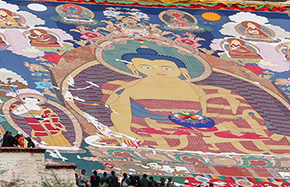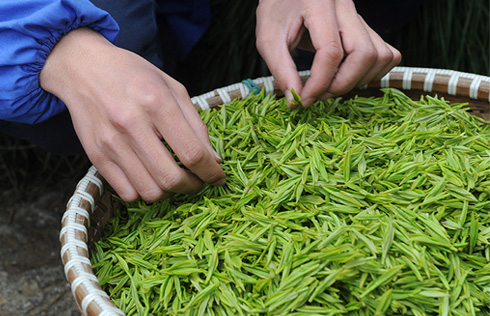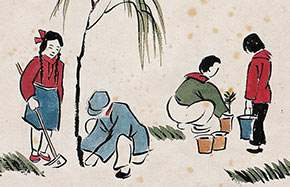Village girls on the move
It's true that the migrant population in Dongguan has dropped from 13 million to 10 million, but "that's still a large number".
China has 600 million people living in the countryside, and migration and urbanization is an inevitable trend in the development, she believes.
Casually donned in jeans during her meetings with readers, it's easy to imagine Chang among a group of factory girls in Dongguan.
Nine years have passed since she made her first visit to Dongguan. Her protagonists in Factory Girls have moved on with their lives.
Min has left the factory she used to work in, got married and has two daughters. She and her husband work together in the logistics field in Huizhou. Min's mother-in-law lives with them to take care of the children.
Chunming, the young woman in the book who was constantly pursuing happiness and the meaning of life, is still single and working as a sales agent for a small tea-house chain.
Soon after the publication of the book in 2008, the world was hit by recession and China exports stalled. But in the next year, the situation in China recovered and workers went back to the factories.
"China's economy is resilient," Chang says.
Previously, if the job market was bad, some workers stayed on at home after they went back for the Spring Festival. They only returned to the cities when there were jobs.
Some chose to start small businesses, opening a restaurant or shop, in small towns near their home.
Now there is a third choice. Many companies have gone to the second- and third-tier cities, and these workers have the choice of getting a job in a city near home.
Chang first visited Dongguan in 2004 when she was a Wall Street Journal correspondent. After a three-day stay she had the urge to write a book about it.
She rented an apartment in Dongguan and stayed one to two weeks there every month, doing interviews and observing migrant women — the main work force on the assembly lines in the factories that produce branded goods including Coach bags, Nike shoes and iPads.
Chang wanted to write a book about factory girls as she was doubtful about the news stories she read at that time. Many told about the abuse and suffering workers go through in China's "sweat factories".
"China has more than 150 million migrant workers. If leaving home to work only means suffering, why do all these people keep doing so?"
Through her research, Chang found that city life opened their eyes and they see the possibilities to move up the social ladder.
In Dongguan, the dynamic to move upward is prevalent.
Night schools teaching English, marketing and secretarial skills are full of students, and books about self-improvement take up every rack in bookstores, Chang found.
Her two main characters have both upgraded their lives and that of their families, and they have also changed their perspective about happiness.
Chang and the two young women in the book became close friends. Chunming has kept a journal and told Chang that one day she might write a book about her own life.
"It may be even better than my book," Chang says.
Chang now lives with her husband Peter Hessler - also an established writer about China - and their twin daughters in Cairo, Egypt.
"The Middle East is a colorful region of rich culture, yet we know little about it," Chang says.
All the media coverage about the area is of politics and terrorism. Chang and Hessler plan to learn Arabic, understand the society better and write stories about ordinary people there.


















